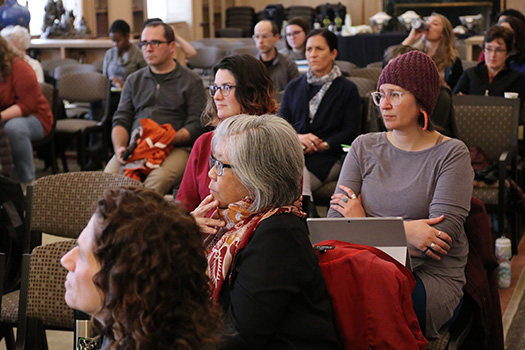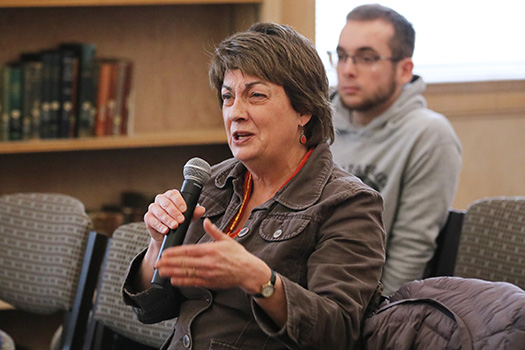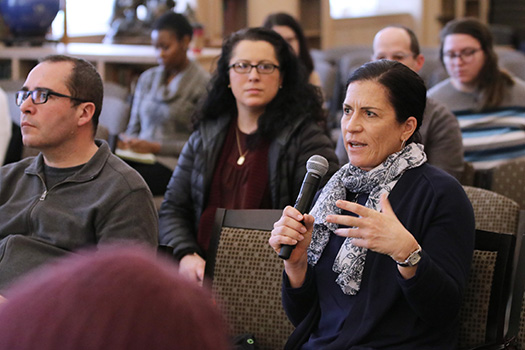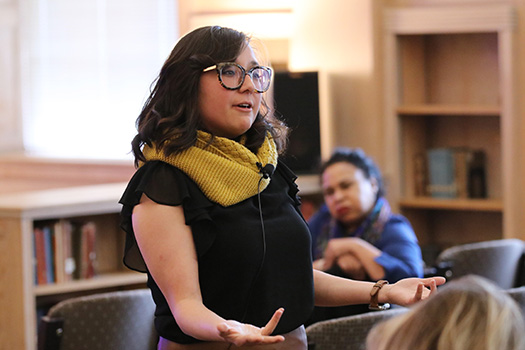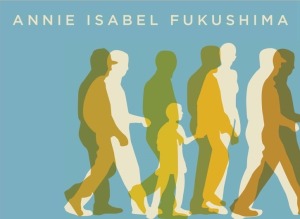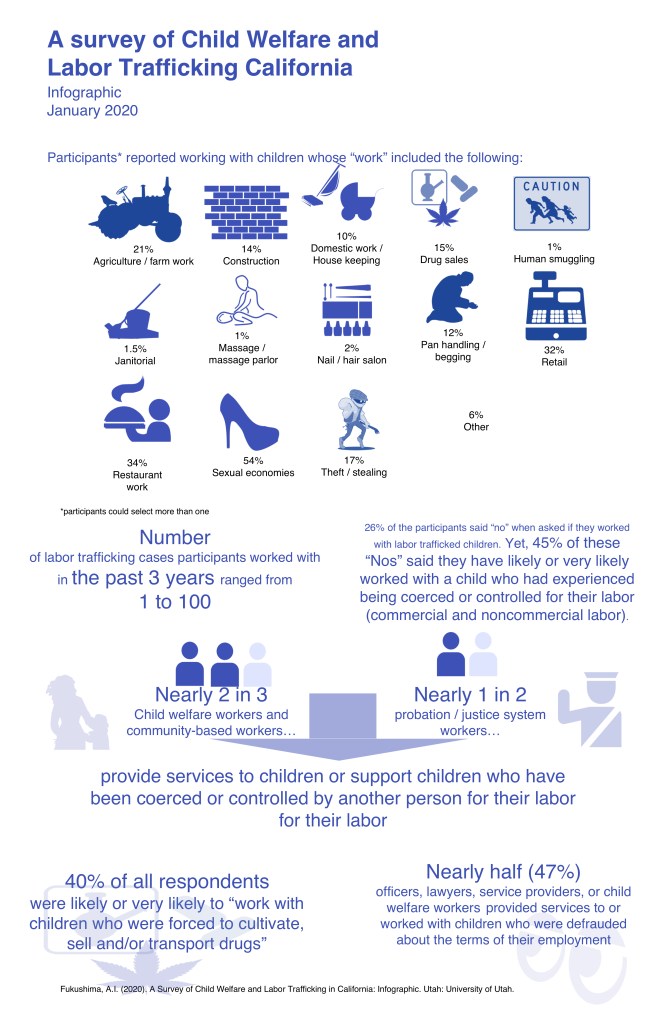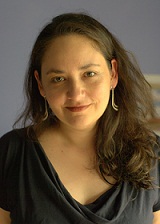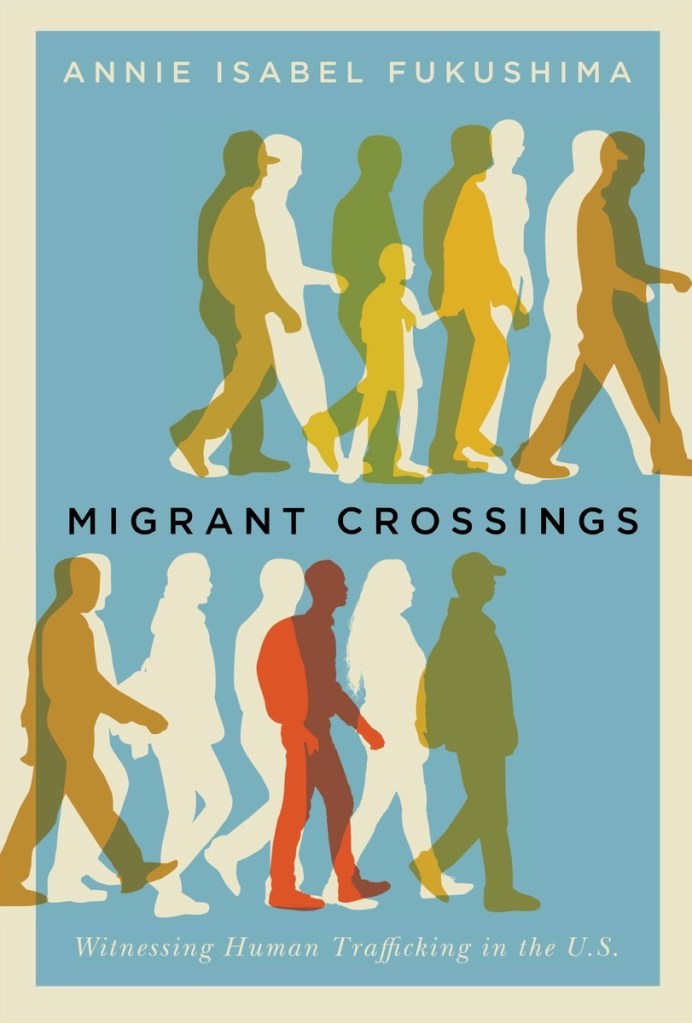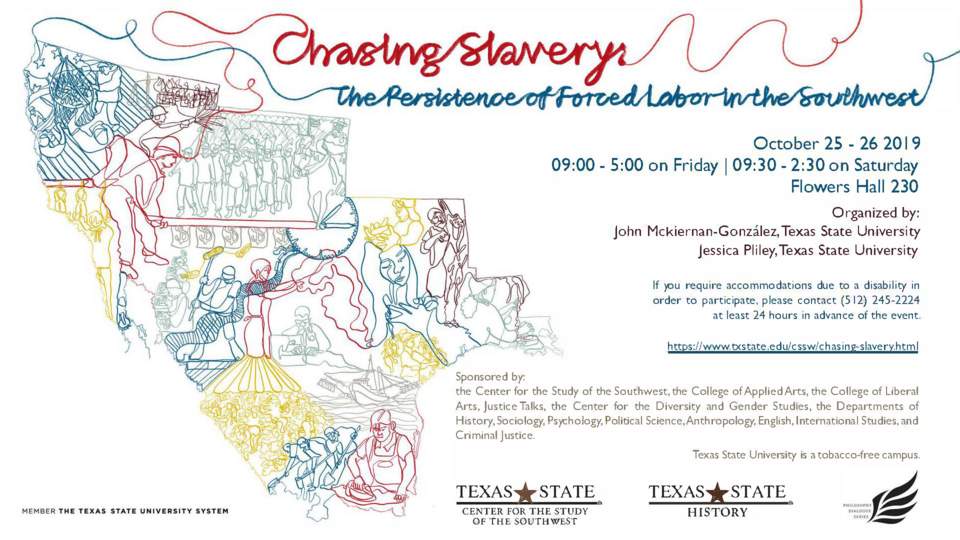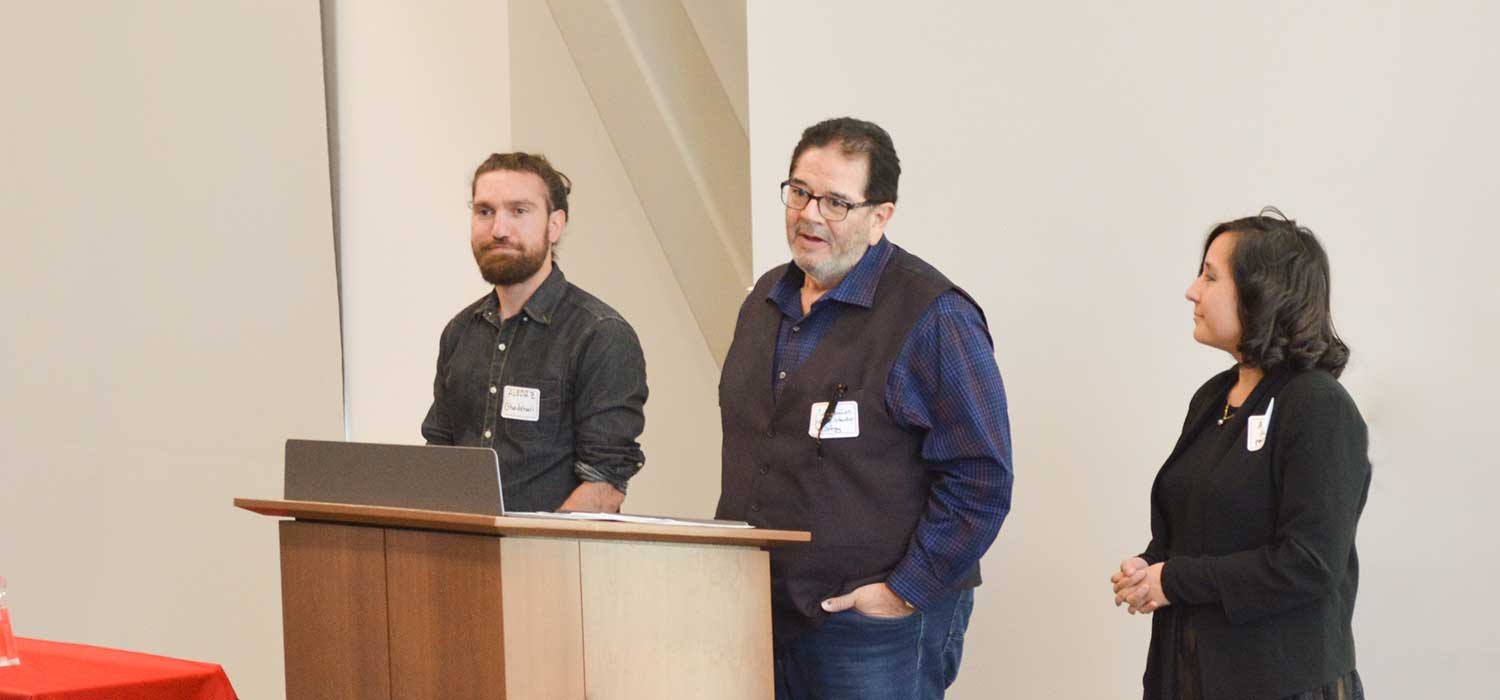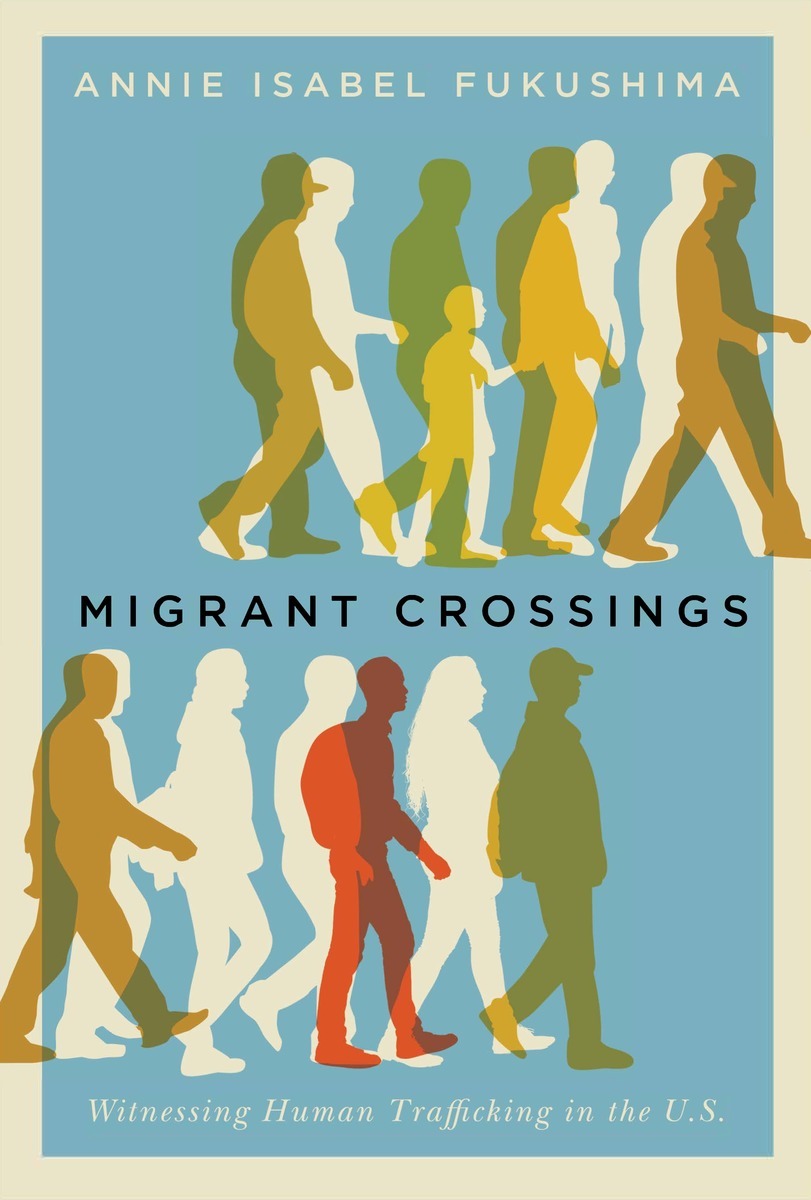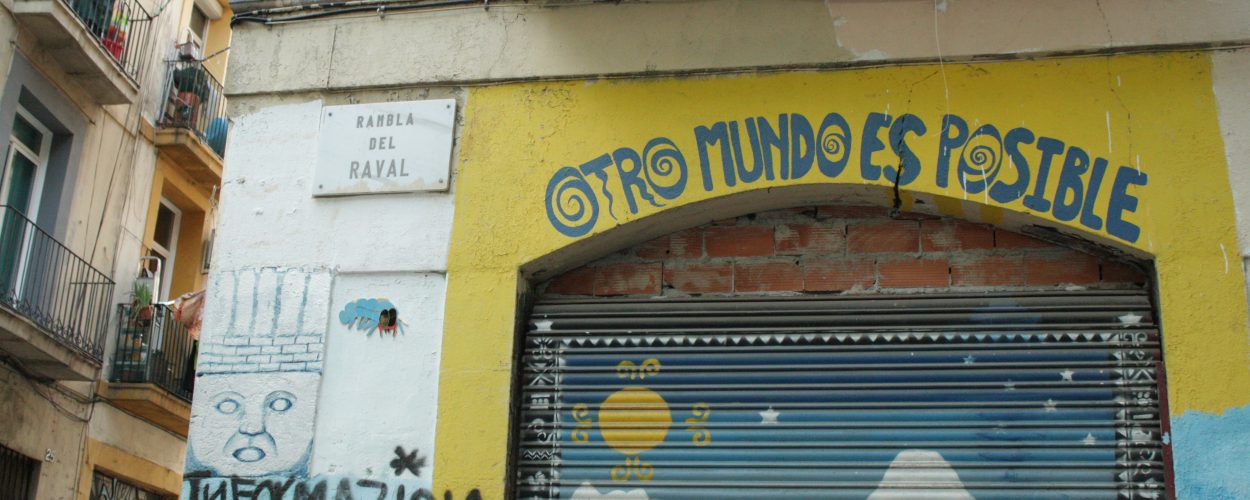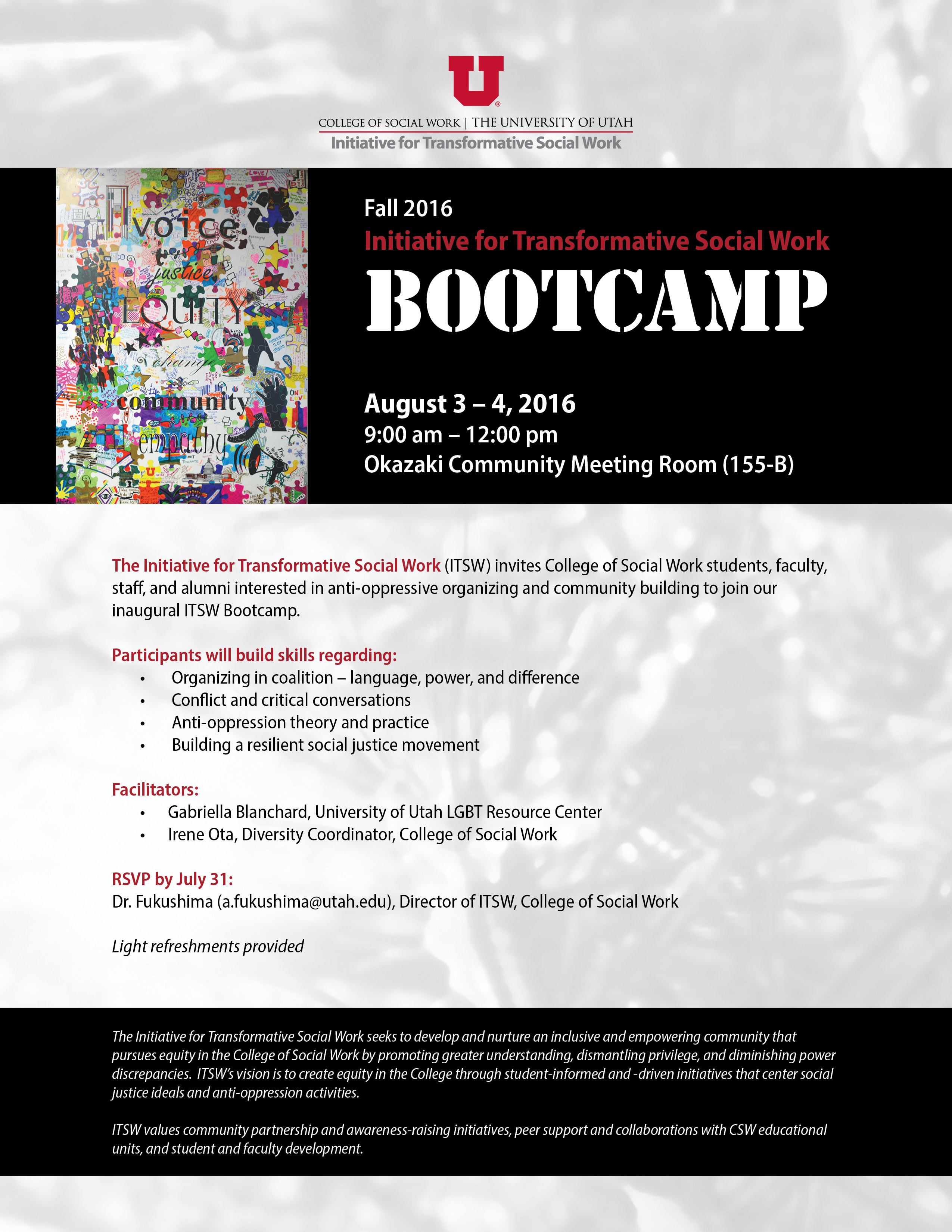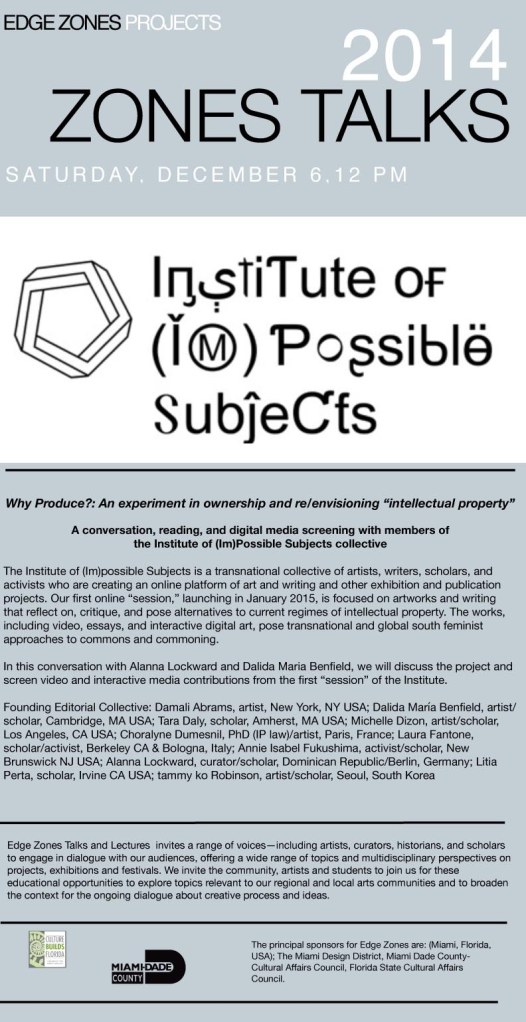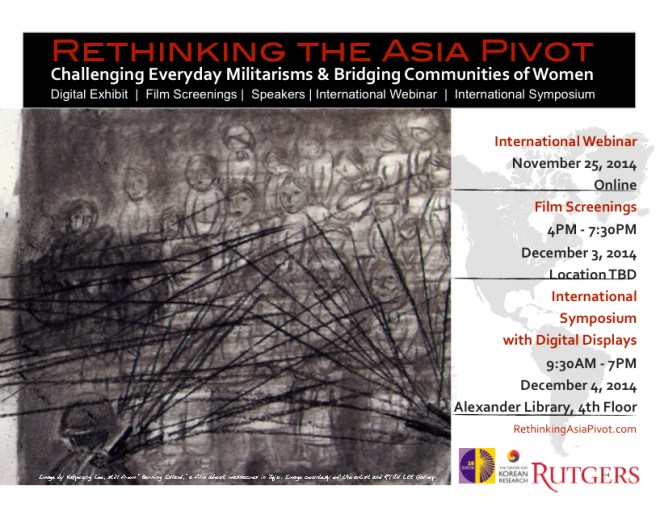A Brief Message from the Editors
We appreciate everyone who contributed to this newsletter on human rights in a new era. The content included in this newsletter responds to the context of a Trump presidency and its national and international implications; the contributors provide insights into human rights research, teaching, and advocacy nationally and abroad. The contributors paint a picture of the social and intellectual obligations of sociologists to contend with the human, notion of rights and human rights in this era.
Please see the final page of this newsletter for information on how to submit your pieces, and thank you in advance!
Annie Isabel Fukushima, University of Utah
Hollie Nyseth Brehm, Ohio State University
Table Contents
Human Rights (Section) In a New Era – Thoughts from Your Section Chair – by Joachim J. Savelsberg, University of Minnesota
Contributors
“Human Rights Scholarship in the Time of Trump” by Michael Schwartz, Stony Brook University
“What Is To Be Done? Response to Schwartz” by Louis Edgar Esparza, California State University-Los Angeles
“The Mexico City Policy: An Impediment to the Achievement of Women’s Right to Life” by Elizabeth Heger Boyle, University of Minnesota
“In Defense of Public Goods” by LaDawn Haglund, Arizona State University
“Using Sociology to Promote and Protect Human Rights” by Erik Larson, Macalester College
“Creating Inclusive Human Rights Classrooms” by Marie Berry, University of Denver
“Untitled” By James Rule, University of California, Berkeley
“Developments in Monitoring and Measuring Human Rights Violations” by Christopher N. J. Roberts, University of Minnesota
“Persistent Tensions: Human Rights and National Sovereignty in Socialist Venezuela” by Timothy M. Gill, Tulane University
Awards & Anouncements
2016 Section Awards
Awards and Announcements
Publications
Newsletter Submission Information
Human Rights (Section) In a New Era – Thoughts from Your Section Chair
by Joachim J. Savelsberg, University of Minnesota
Human rights scholars, like many, have been in a state of shock as of late. A growing number of nations openly dismiss basic principles of democracy, international solidarity and human rights. Turkey, the Philippines, Syria, and Russia are among them, and the forces that threaten the same principles are gaining ground in Western democracies as well, including the United States.
We are in shock all the more, as many expected global scripts of rationality and human rights to spread into all corners of the globe. And indeed, recent decades have witnessed systematic efforts to build institutions in response to grave human rights violations, a “justice cascade,” and an unprecedented wave of apologies by heads of state for injustices done in the names of their countries. Yet, denial has also been rampant, at times strategically planned in response to acknowledgment, and supported by a calculated reluctance to intervene.
The shock is further intensified as new trends are not just imposed from above, but at times supported by grassroots movements and tolerated by large segments of the population in many countries. It seems to me that we are facing a popular revolt against elites (yes, including scholars) and technocrats by those who feel that massive structural changes leave them on a downward trajectory, those who cannot hold their own in times of massive economic globalization and technological change. These times remind me of the 19th century industrial revolution, the structural transformation it constituted, the displacements it caused and the at times violent reactions, like those described by German playwright Gerhard Hauptmann in his “Die Weber” (about the 1840s violent uprisings of displaced weavers in Silesia).
In these times policy programs and political rhetoric become widely accepted that (1) dismiss knowledge, replacing it by ideological falsehood, (2) denigrate minorities and (3) advance protectionism. All three trends repeat developments of the 1930s in Germany, the country in which I was born, raised and educated. The denigration of minorities, its catastrophic outcome, foremost against Jews, is well known; “attitude is everything; knowledge is garbage” became a slogan in institutions of higher education; and employees from industries that benefitted from protectionist trade policies joined the Nazi party more than others.
What can we do? Most of us are U.S. citizens. Many of us are also members of social movements. And to us as engaged citizens, President Obama gave good advice in his farewell speech in Chicago, just two days ago as I was writing this text. I recommend rereading his speech. There is much we may want to take to heart.
But what can we do in our special role as scholars of human rights? We, after all, have tools to our avail that others are lacking. We must use our tools of scholarship to continue to observe, measure, and explain human rights violations and responses to them. My first sociology professor at the University of Cologne in the 1970s was René König, German émigré to Switzerland during what he called the 12 years of the so-called Thousand-Year Empire (yes, it was a short period, but the destruction during short periods can be beyond imagination). He insisted that we confront ideology with rigorous scholarship and social scientifically based knowledge. There are certainly different ways of knowing the world out there, but a real world there is, a world with human joy and suffering. We have to decide what methods of knowledge production we want to trust more than others. This decision is value-based, and I made my decision. I follow René König by pleading for methods of scholarship. Especially as human rights scholars, the current times increase our raison d’être. We have to live up to our obligation to generate knowledge about human rights, their abuses and their protections.
On a personal note, while our lives will be affected by recent political trends in the US and around the globe, they will not be absorbed by them. I, for one, am determined to continue to appreciate the blessings of my private life, all while living up to my obligations as a scholar and as a world citizen and a citizen of this country.
For us as an association I see two ways forward. First, let’s tap into our collective imagination. Some of you have responded imaginatively to my request for ideas on the monitoring of human rights violations in a new age of uncertainty and threat. This edition of our newsletter presents those contributions we received to our membership. I consider this a start, a collection of ideas that may bear rich fruit if we all take them seriously and follow up.
Second, let’s carry on with our year-to-year business. We have good things to look forward to in the life of our section, its newsletter and the 2017 Annual ASA Meetings in Montreal.
Regarding the newsletter, we have been served superbly well by Rusty Shekha in recent years, and we owe him great thanks. Rusty had to step down at this point for reasons we surely respect. He will be succeeded by an outstanding new editorial team, consisting of Hollie Nyseth Brehm at the Ohio State University (brehm.84@osu.edu) and Annie Isabel Fukushima at the University of Utah (a.fukushima@utah.edu). I profoundly thank Annie and Hollie for agreeing to take on this job. As we move forward, please send any postings, such as announcements of recent publications, awards, or conferences to the new editors, as they detail above.
Further, we joined forces with the Section for the Sociology of Law to offer two co-sponsored panels at the 2017 Annual Meetings in Montreal. The topic will be: Human Rights and Law from Above and Below – Comparative Perspectives. One of these is an invited session, the other was open to submissions. Together they form a mini-symposium. The organizer of the open submission session is Frank Munger—great colleague, section member in both Human Rights and Law, and former editor of the Law & Society Review. In addition, we will hold our customary roundtables. The organizer of the roundtables is Lynette Chua of the University of Singapore. We trust that these roundtables will be at least as engaging as they were last year. Great thanks to Lynette and Frank! Also at the Annual Meetings, we have joined forces with the Section for the Sociology of Law and the Section on Crime, Law, and Deviance to organize what promises to be a spectacular party on the terrace of an old hotel (Hotel William Gray), a very manageable and most interesting walk through old Montreal from the conference site. We owe Eran Shor at McGill great thanks for identifying this site.
Again, let’s continue to make our section grow in size and relevance. It is an honor serving as your chair.
Human Rights Scholarship in the Time of Trump
by Michael Schwartz, Stony Brook University
I hope there will be many responses to Joachim Savelsberg’s invitation for section members to apply their evidential and analytic expertise to the task of answering the threats to human rights emanating from the Trump Administration. This can be an occasion when social scientists fulfill the mandate first articulated by W.E.B. Du Bois: that sociology should have as its mission “unleashing social truths,” “empowering change,” and “liberating humanity.”[1]
Toward that end, I want to point to some very narrow and applied work that already looms as instrumental in protecting (and hopefully even extending) human rights in “the Time of Trump.” This is not work I feel I am qualified to do; but my idea is that we all should be thinking in this way, and hope that by circulating these ideas, they will reach other scholars with the energy and expertise needed to implement them. That is, we need to act collectively to “unleash the social truths” that social science has to offer, and therefore empower the practitioners and activists who need these insights to defend or extend human rights.
So here are a couple of ideas about what kind of scholarship might be immediately useful:
The Trump Muslim Ban is going to be the subject of a sustained struggle, despite the resounding February 10 repudiation of Trump’s draconian Executive Order by the Ninth Circuit Court.[2] We can expect a whole raft of future moments, including some or all of the following: the evidentiary hearing (where the specific cases will have to be made); the various future appeals (where more conservative judges may be key); the now looming almost-certainty of a new Executive Order, which will need substantive challenge and on-the-ground resistance.
Despite the heartening mobilization of protest, legal challenge, and even state governments against this, there is nevertheless a dangerous lack of precision—or in many cases a lack of general information—on who has been impacted by the ban and in what ways it has harmed or endangered their welfare. And—maybe more important—tracing out the harmful human rights consequences of this or of a modified ban for the concentric circles of people in the U.S. and globally.
At least some of us are equipped to fill this evidential and analytic void. And if we can provide some clear answers, this work will be utterly central to the legal dispute—the Circuit Court decision[3] specifically mandates an investigation and adjudication of the economic and personal damage of the ban (and a comparison with its “beneficial” impact on “national security”). Nevertheless, the State of Washington, the ACLU, and the growing army of lawyers working the many cases have dreadfully fragmentary evidence.
We are in a position to provide comprehensive information that could be crucial to the judicial process. And this same information would be invaluable to the individuals and groups who are in the line of fire, all the activists mobilized to protect those impacted, and the broader public which is looking for ways to resist Trump’s attacks.
Here are a few of the important measurement issues that someone (or a research team) with real skill and expertise could help to answer:
- How many people are in the pipeline for visas from the seven outcast countries—have already applied, but not yet granted—and where are they located? Is Homeland Security continuing to process them now that court injunction has been validated; or are they—in some venues—illegally imposing the ban?
- How many current residents of the United States are here on student, visitor, or work visas from the outcast countries; how has the ban (or its threat) impacted their safety and welfare; and how can they be forewarned or forearmed against current or pending dangers?
- What is the magnitude of U.S. business and personal travel for people from these countries; what is the magnitude of business and personal travel of U.S. residents/citizens to these countries? How disruptive is the reality or threat of the ban to their safety and welfare? How can they be informed of agencies or groups they can connect to?
- Can we use already-developed research strategies to measure and analyze the full extent of disruption (to commerce, personal lives) that this ban can or would accomplish? Looking at the direct impact on those banned, on their families, on their businesses or occupations, and then outward to the people who rely (personally or economically) on this set of concentric circles? One example I know of was the cancellation of an already-planned academic conference on Middle East history and culture, a disruption of the lives and scholarship of hundreds of scholars, most of whom were not the direct targets of the ban.
Careful (or even quick but accurate) research on these and all the related issues will be very useful for the lawyers active in the (already) myriad legal cases being contested; allow the people directly and indirectly to contact each other and act collectively; and provide useful tools for rallying the broad opposition by demonstrating that these human rights violations reach right into most people’s lives.
And here is another, quite different, but also urgent application of our research skills. As the media are starting to report (not enough to be sure), Homeland Security has begun an onslaught of raids into Latino communities (unfortunately pioneered and defended by the Bush and Obama administrations), summarily detaining and deporting long-time residents (many with young children who are U.S. citizens) who have done nothing to provoke their expulsion.[4] The terrorized communities have been organizing resistance to these raids, and there is real promise that this resistance can become the enactment of the sanctuary movement.
Human Rights (and particularly immigration) scholars have a great opportunity to supply usable knowledge to this resistance/sanctuary movement. The U.S. has a long history of immigration exclusion, as well as a long history of civil disobedience as a strategy for resisting various forms of expulsion. This history needs to be mined for useful insights into what succeeded and what failed in the past, and how these lessons can be applied to the current situation. This kind of work is exemplified by the superb David Bacon article circulated to the section by Bryan Rich.[5] But this is only a start on what we need to do. We need to cull more insight from this history, and all become analysts of the many moments of resistance going on right now. Our analytics skills are needed to transmit lessons learned from one locale to others, as they try to defend communities against this developing reign of terror.
As social scientists we don’t often have an opportunity to contribute to “empowering change,” let alone “liberating humanity.” But, this is one of those moments. What we have to contribute can make a difference. And I think that Du Bois would say that when the opportunity appears, it becomes an obligation.
So I thank Joachim for creating a forum in which we can contribute, and I hope that the folks in the Human Rights section treat the opportunity as an obligation.
[1] Aldon Morris, The Scholar Denied: W.E.B. DuBois and the Birth of Modern Sociology (Berkeley: University of California Press, 2015).
[2] State of Washington et al v Donald J. Trump et al, “Motion for Stay of an Order…” Order No. 17-35105; D.C No 2:17-cv-00141 Filed February 9, 2017, found at https://assets.documentcloud.org/documents/3457898/2-9-17-9th-Circuit-Order.pdf
[3] Ibid.
[4] Democracy Now, ‘ICE Raids Speed into Overdrive: Advocates Say Obama’s Deportations Reaching 100 MPH under Trump,” (February 2, 2017), found at https://www.democracynow.org/2017/2/10/ice_raids_speed_into_overdrive_advocates .
[5] David Bacon, “What Donald Trump Can and Can’t Do to Immigrants,” NACLA Newsletter, (February 6, 2017), found at http://portside.org/2017-02-10/what-donald-trump-can-and-cant-do-immigrants
What Is To Be Done? Response to Schwartz
by Louis Edgar Esparza, California State University-Los Angeles
The task of sociologists, and especially sociologists of human rights, has not changed, though it may now be more urgent. United States institutions violate international human rights standards and norms as a matter of course, though some may now worsen. Here I offer my colleagues suggestions for research, the classroom, and for us:
For Research:
Understand, conceptualize, and reconcile some well-known data regarding the US criminal justice system with international human rights standards, including the following stubborn trends:
- The United States currently holds two million people behind bars;
- That is more than any nation today;
- That is more than any nation in history;
- Of these, a disproportionate number are African American;
- Work behind bars is remunerated below the federal minimum wage;
- The United States continues to practice capital punishment;
- The United States continues to practice solitary confinement;
- The United States continues to hold individuals without trial;
- The United States continues to collect personal data without a warrant;
- The United States continues extrajudicial killing via drone strikes.
Use data on social indicators that reveal the place of the US among peers:
- The United States ranks 24th of 36 OECD countries on share of women in government;
- The United States ranks 29th of 36 OECD countries on life expectancy at birth;
- The United States ranks 35th of 36 OECD countries on income inequality;
- The US ranks 35th of 36 OECD countries on rate of poverty;
- 75% of OECD countries grant some form of paternity leave. The US is not among these;
- The United States is the only OECD country that does not grant maternity leave for at least 12 weeks.
For the Classroom:
- Inform classrooms of resources for undocumented, refugee, and immigrant students;
- Make time to listen to students who are processing the changes undergoing in our society;
- Place domestic human rights abuses in the context of US human rights abuses abroad;
- Provide instruction on media literacy.
For Us:
- Provide an unambiguous and unqualified defense of the Universal Declaration of Human Rights (UDHR), especially for marginalized peoples;
- If you are placed in a situation where you are instructed to violate the UDHR, do not follow it;
- Practice self-care;
- If you have the resources, you may choose to donate to the Council on American-Islamic Relations, the American Civil Liberties Union, the Southern Poverty Law Center, the Coalition for Humane Immigrant Rights of Los Angeles, or similar groups of your choice in your local area.
To End:
Two hundred people were arrested at the president’s inauguration on 20 January 2017. Many – including six journalists[1] – faced felony rioting charges, up to $25,000 in fines, and 10 years in prison.[2] Some of these charges have since been dropped, but this is part of a long trend in the criminalization of protest,[3] which now includes journalists. Resistance to worsening trends could use all the assistance possible.
[1] https://www.nytimes.com/2017/01/25/business/media/journalists-arrested-trump-inauguration.html?_r=0
[2] https://www.buzzfeed.com/zoetillman/prosecutors-pursue-rioting-charges-over-inauguration-day-pro?utm_term=.dwx97yA5e#.akqrqko1R
[3] Esparza, Louis Edgar and Rhiannan Price. 2015. “Convergence repertoires: anti-capitalist protest at the 2010 Vancouver Winter Olympics.” Contemporary Justice Review.
The Mexico City Policy: An Impediment to the Achievement of Women’s Right to Life
by Elizabeth Heger Boyle, University of Minnesota
In sub-Saharan Africa, an estimated 580 women die from pregnancy-related complications for every 100,000 live births. For women in this region of the world, the lifetime chance of dying from pregnancy complications is 1 in 38. This reveals a violation of women’s basic right to life.
President Trump’s reinstatement and possible expansion on January 23 of the 1984 Mexico City Policy exacerbates this problem. The Mexico City Policy bans US aid to any organization that provides abortions (broadly defined) or even refers to abortion as an option for women. The Mexico City Policy was initially introduced under President Reagan and has been reinstated by all Republican presidents since then. George W. Bush exempted various services, such as post-abortion emergency treatment, from the ban, but Trump’s Executive Order made no such distinctions.
Ironically, over time, regions with high exposure to the Mexico City Policy have tended to have greater abortion rates, likely because access to modern contraception goes down when the policy is applied. Furthermore, abortion rates have not significantly decreased in the Global South since Reagan first instituted the policy, but they have declined notably in the Global North where there are no such restrictions. Apart from a lack of access to modern contraceptives, Trump’s expansive Executive Order could mean less funding for many hospitals in Sub-Saharan Africa, affecting public health in many other realms as well.
There is no reason for reinstituting the Mexico City Policy—the 1973 Helms Amendment already prevents the use of US tax dollars for abortion-related services or devices domestically and abroad. It is important that we continue to press the new administration to ensure rather than impede women’s basic human rights.
References
Bendavid, Eran, Patrick Avila, and Grant Miller, “United States Aid Policy and Induced Abortion in Aub-Saharan Africa,” Bulletin of the World Health Organization, Sept. 27, 2011 (online publish date): Vol. 89, pp. 873-880C, http://www.who.int/bulletin/volumes/89/12/11-091660/en/.
Kaiser Family Foundation. 2017. http://kff.org/global-health-policy/fact-sheet/mexico-city-policy-explainer/
Sedgh, Gilda, et al. 2016. “Abortion Incidence between 1990 and 2014: Global, Regional, and Subregional Levels and Trends.” The Lancet 388(10041): p. 258-267.
Suh, Siri. 2017. http://genderpolicyreport.umn.edu/new-president-old-anti-abortion-policy/
In Defense of Public Goods
by LaDawn Haglund, Arizona State University
With the election of Donald Trump to highest office in the United States, it seems a new era has dawned. As sociologists of human rights, the range and depth of threats posed by the new administration are breathtaking. We as a society have much to lose: decades of environmental protections guarding the rights of current and future generations, safety nets designed to prevent illness or hardship from sinking people into total despair, checks on the power of the rich to extract disproportionate resources from our shared societal wealth while restricting the rights and remuneration of workers, and a large body of regulations enacted to help prevent discrimination against non-majority populations.
Though analyses of how we came to this point continue to flood both professional and social media, I would like to focus on one aspect that is not new, but is often ignored: the assault on public goods. By public goods, I do not mean narrowly-defined “pure public goods,” which can only be provided by the state (think military and public infrastructure). I am referring to public goods that could potentially be privatized, though not in ways that are accessible in a just and equitable manner (think education, health care, social security, or meaningful remunerative work).
Scholars of human rights will immediately see the parallels with fundamental human rights. Societies create public goods to support the normative ideals embodied in human rights because without them, life for both individuals and the community as a whole is degraded, undignified, and at times lethal. Countless dedicated activists, communities, legal advocates, and public servants achieved these protections, safety nets, checks, and regulations over the course of generations of struggle.
Notwithstanding current shortcomings in achieving the ideals laid out by the Universal Declaration of Human Rights, it is still possible to acknowledge the threats posed by the all-out assault on public goods waged by Congressional Republicans, right-wing media and think tanks, corporate lobbyists, and wealthy donors. This campaign—which has existed since the New Deal but gained traction with the “rollback neoliberalism” of Reagan and the 1994 Republican-dominated Congress—would have us ignore legitimate motivations for pursuing public goods. Instead, we are urged to rally against “government waste,” “burdensome regulations,” and “restrictions on liberty” while demonizing human vulnerability. These framing strategies are designed to win the hearts and minds of a critical mass of people so that the idea of a useless and rapacious state becomes a self-evident, common sense maxim.
Unfortunately, this strategy has blossomed into a full-blown offensive against public goods, and its proponents are now at the helm of the battleship. Sociologists are—implicitly or explicitly—at the center of the political storm, given their expertise in analyzing inequality, injustice, power, and privilege as they manifest along cleavages of race, class, gender, sexuality, and religion. This provides us with a unique opportunity to clarify not only how radical reversals of policy became possible, but also where and how they might be blocked, and how rights- and life-affirming alternatives might be advanced.
In Closing the Rights Gap, Robin Stryker and I asked several questions of relevance to this historical moment: “How is it that individuals and institutions come to accept a new set of norms or principles? When and why do they begin to act in ways that support these principles?” As with all social transformations, the current situation was brought on by identifiable actors who took concrete steps, utilizing a range of mechanisms and strategies, over time and in dialogue with existing political and institutional realities, to promote a set of norms reflecting their own goals, values, and interests. In this process, they sought to shape the perceptions and desires of the population at large around new normative frames that vilified state action, and to encourage people to act on those beliefs by supporting those who perpetuated the emergent discourses. From this point of view, our current situation did not originate with Donald Trump, nor is he the only agent of threat.
Similarly, the struggle to maintain the integrity of our hard-fought public goods, as well as to promote further spaces and processes where justice and dignity are upheld and fulfilled, is being waged by a range of actors intervening in analogous but opposite ways. Some of the mechanisms and strategies highlighted in our and others’ work include informational mechanisms geared toward providing evidence in support of a course of action (which, in the current zeitgeist, may include “alternative facts” and misinformation); symbolic mechanisms that employ framing or symbolism to inspire support (compare “Make America Great” baseball caps with “Pussyhats”); power-based mechanisms designed to mobilize pressure for change (lobbying and protest are common examples); legal mechanisms that utilize courts to uphold official norms; and cooperative mechanisms (such as dialogue and participatory spaces).
As sociologists, we have much to offer in all of these areas. As researchers, our role is crucial in asking the right questions, providing empirical evidence for the answers, and crafting solutions based on the best possible evidence. We can defend public goods by providing systematic, accessible evidence to the public, grassroots organizations, courts, Congress, and state legislatures that exposes the conditions that necessitate public goods, as well as documents the benefits they impart. While acknowledging the failings of our social institutions, we can illuminate the problems they are designed to address in ways that matter to people and appeal to our shared humanity. Otherwise, the dominant narrative of the rapacious state (and beneficent markets) will dominate.
Of course our work, and in fact much sociological inquiry, threatens those who benefit from existing injustices, and these actors have great incentives to cast aspersions on critics. As teachers, we must continue arming our students with critical reasoning skills and well-supported data and information, despite increasing attacks on the integrity of our scholarship by the media, “freedom schools,” and the privatization of education.
Yet, in the age of “alternative facts,” we can no longer expect our expertise to be enough. We also need counter-narratives to blanket assertions that the problem is the state. Policies and institutions such as the EPA, anti-discriminatory legislation, social safety nets, and shelters for vulnerable people – whether displaced, victimized, or otherwise at risk – did not arise out of thin air, or as some would have us believe, out of a desire to take money from hard working people. Moreover, creating a caring society is not the sole responsibility of charity organizations, but also of state actors and institutions working with communities. Alternative discourses of justice, compassion, and empathy that foreground the importance of public goods can restore the legitimacy of harnessing the state for societal wellbeing.
Narratives are also not enough, as our research indicates. Mobilization, legal challenges, and cooperative building of alternatives are also crucial. We are at a crossroads, where a multi-directional defense of public goods will be required to advance human rights. As scholars and teachers, we have much to offer in all of these areas, and a lot to lose if we stand by silently and watch our hard-sought knowledge be ignored, distorted, or dismissed. This period of crisis presents an opportunity to move beyond the glaring shortcomings of previous institutional and social arrangements to foster the emergence of a more just, inclusive, and rights-responsive society.
LaDawn Haglund is the author of Limiting Resources: Market-Led Reform and the Transformation of Public Goods (2010, Penn State Press) and co-editor (with Robin Stryker) of Closing the Rights Gap: From Human Rights to Social Transformation (2015, U.C. Press).
Using Sociology to Promote and Protect Human Rights
by Erik Larson, Macalester College
The recent and potential dramatic electoral shifts fueled by right-wing populism in the United States and Europe pose challenges to human rights. Fundamentally, these outcomes challenge the universality of human rights, particularly as the basis for government action, favoring a more ethnonational understanding of rights protection and provision.
In such an environment, how can sociologists respond effectively? There are certainly instances in which our professional commitments correspond to human rights principles—threats to academic freedom such as silencing researchers from presenting findings among a community of scholars or denying scholars access to data are also instances of interfering with rights to opinion, expression, and assembly.
Beyond these instances, we may see our work of gathering and presenting data as vital to promoting the monitoring and realization of human rights. In doing so, we need not duplicate the efforts of organizations with core human rights missions. Their collection and documentation of violations and provision of this compiled information to organizations that review human rights practices will often be more efficient, immediate, and effective than what we as scholars could achieve through primary data collection.
Yet, we as individual scholars and a collective profession have much to offer. Drawing as much on the inspirational work of many colleagues as on my own research on the growth of indigenous rights as a transnational phenomenon, the following non-exhaustive list catalogs some of these contributions that sociologists can continue to make:
- Examining primary data in illuminating ways. Whether drawing on methods of analysis that can help uncover unexamined relationships or deploying theoretical ideas to provide new explanations, sociologists studying human rights can generate insights that provide focus to understanding the situation of human rights.
- Understanding social determinants of rights realization. Moving beyond the immediacy of rights violations, examining the conditions that result in achievements of human rights can reveal a range of mechanisms that affect how individuals pursue rights and how other actors, such as governments and corporations, structure activities in ways that more effectively consider the human and distributive consequences of action.
- Viewing situations from a human rights framework. Connecting the social conditions that we study—the gaps and inequalities—to human rights ideals could demonstrate the connections between people in different situations that much contemporary political rhetoric seeks to deny.
- Seeing organizational processes that affect human rights. Acknowledging that not only governments are relevant human rights actors and examining how private sector and civil society organizational processes connected to organizational environments, networks, and movements can uncover means through which unsupportive government actions can be countered effectively.
- Finally, explaining how human rights have become more influential. The history of human rights shows both increasing institutionalization in the international environment and autonomy on the part of human rights experts, suggesting that there is potential for new alliances to continue to challenge threats to the well-being and dignity of people.
Creating Inclusive Human Rights Classrooms
Adapted from Sie Center QuickFacts “Creating Inclusive Classrooms in International Studies”
by Marie Berry, University of Denver
We enter 2017 in a highly charged political moment. There are important conversations happening at universities across the U.S. about creating and preserving our classrooms and campuses as spaces where all students—regardless of gender, race, religion, sexual orientation, ability, immigration status, citizenship, or any other category of difference—feel welcome and encouraged to learn. At many colleges, it has also become apparent that international studies schools and classrooms face a series of unique issues related to inclusiveness and diversity—issues which likely apply to many human rights classrooms as well. These issues range from the fact that most students in international studies programs in the U.S. are from the West (and advantaged backgrounds), yet many aim to do work in the Global South among the most disadvantaged, to the fact that many international studies topics (e.g., development, human rights) have been accused of (neo)colonial orientations. While these issues have long been important, the current political environment has created an acute need to address them because many members of university communities—students, staff, and faculty—feel under threat.
Together with colleagues, I solicited feedback from a small group of current Master’s students on simple but potentially impactful ways that all faculty can begin to work towards creating inclusive classrooms where all students feel welcome and encouraged to learn about global issues. Based on the feedback from students, I offer this initial list with the recognition that it is not sufficient or comprehensive; rather it offers points of entry where faculty teaching on international issues can easily infuse principles of diversity and inclusion into their courses.
- Diversify assigned readings:
Work to ensure our course readings reflect a diversity of perspectives and authors from different backgrounds—including women, people of color, and scholars from the Global South. This is particularly important in international studies courses in order to actively disrupt the tendency to anoint Western scholarship and perspectives as the gold standard. Instead, ask whether there are places on our syllabi where local voices, scholars from marginalized groups, and scholars from the regions under discussion could be assigned. Even when these voices do not dispute traditional scholarship, normalizing diverse voices on our syllabi can allow more students to recognize their backgrounds as generating useful and legitimate perspectives on an issue. This tool is a useful way to get a quick estimate of diversity.
- Talk explicitly about inequality, power and privilege (without burdening those on the margins):
Many students of international studies—and human rights in particular—aspire to careers in the global arena. In order to do this work effectively, many are eager to better understand their own privilege and bias. One way to integrate these discussions into a variety of courses is to center the idea of intersectionality—the recognition that all people have multiple identities that are bound up with power hierarchies and that intersect and overlap in ways that create discrimination, advantage, or both in different situations. There are many resources to help facilitate these discussions, which require preparation (see here to get started and watch Kimberlé Crenshaw’s new Ted Talk). These conversations are important for white, Western students aiming to do work in the Global South in the current political environment. They are also important for students of color who may be interested in joining the Foreign Service or working for international human rights NGOs, where they may experience unique challenges related to their own identity (see an excellent related discussion here).
Further tip: be conscious of not putting the burden of this discussion on students with marginalized identities. This can make them feel like “tokens of diversity” being asked to do more emotional and intellectual labor than those occupying dominant identities, such as their white, cis-gender, straight, Christian, U.S.-citizen classmates.
- Bring current events—including domestic ones—into the classroom:
While most international studies (and many human rights) classes focus on the international, students are eager to bring recent domestic examples into the classroom as well. Perhaps more urgently than ever, what international studies faculty have been teaching for years—on fascism, authoritarianism, political violence, politicized ethnicity, populism, human rights, and so forth—can no longer pretend to only apply to “over there.” For instance, classes that highlight authoritarian regimes would do well to integrate class discussions on how current political discourse in the U.S. shares (or doesn’t share) similarities with the rise of authoritarian regimes elsewhere.
- Model inclusive language on your syllabi and in your lectures:
Language is a powerful tool for either facilitating or combating inequality, discrimination, and oppression. As such, here are some preliminary tips informed by suggestions from our graduate students:
- Consider adding a note to our syllabi affirming all gender expressions and identities and encouraging students to reach out to us if they wish to be referred to by a different pronoun;
- Avoid asking students questions about their race or ethnicity—questions like, “what are you?”—even if asked with good intentions—can make students feel singled out and uncomfortable;
- Note any accommodations for students with differing abilities, medical issues, religious observances, and so forth. Invite students to talk to us if they feel unsafe or discriminated against in any way;
- Avoid using phrases like, “Hi guys” or “us Americans” or “that’s insane” as each phrase is exclusionary or dismissive in certain ways;
- While this may seem obvious, avoid referring to people as “illegals” or “illegal immigrants”; “undocumented” or “unauthorized” are preferred terms;
- Look to work by Gary Howard and others for additional ways of approaching inclusive language.
Conclusion
These suggestions are intended as accessible “first steps” for faculty to create more inclusive classrooms. After the recent spate of Executive Orders, many students also now need specific resources, ranging from advice on their visas or work status, to guidance on whether they should participate in civil resistance efforts, to targeted mental health care resources like crisis hotlines or counseling services. Since faculty (and our syllabi) are often a first point of contact with students, we have an important opportunity to signal our willingness to serve as an ally and resource. Initiatives like We Stand With Our Students provide students the names and contact information of faculty allies and make coordinating efforts to support our students during these difficult times more straightforward, and I invite further suggestions.
Untitled
By James Rule, University of California, Berkeley
For many Americans, the most catastrophic loss of innocence concerning their country’s human rights policies came in the spring of 2004, with publication of photos of Iraqi captives under military detention at Abu Ghraib Prison in Iraq. Time will not soon erode the impact of those images—and I emphasize that images is what I have in mind here. The photo of the hooded prisoner forced to stand for hours in a precarious position, or the one of a female U.S. military guard holding an Iraqi prisoner on a leash—these stripped away all doubt about the lengths American forces were prepared to go in prosecuting their ill-conceived and ill-fated invasion of Iraq. Once these photos started appearing on front pages, everything changed. By all accounts, this country’s standing in world opinion suffered sweeping collapse—from which, some would say, it has never recovered.
Note the gap between the force of those images and that of other forms of intelligence about American actions in Iraq. Since at least the middle of 2003, reliable reports had been emanating from Iraq of unconscionable (and under international law, illegal) treatment of prisoners at Abu Ghraib. Among those making such reports was the International Red Cross. In July of that year Amnesty International cited the U.S. military for subjecting prisoners there to “cruel, inhumane and degrading” conditions. In November, AP distributed a report by reporter Charles J. Hanley documenting abuse of U.S. prisoners in Iraq, including at Abu Ghraib.
Early in 2004, the military itself began to acknowledge questions about such abuse. On January 13, one of the MPs in duty at Abu Ghraib reported abusive actions to military investigators. Three days later, the U.S. Command in Baghdad issued a one-paragraph press release on such an investigation. Three days after that Ricardo Sanchez, the Commander of U.S. forces in Iraq, ordered a criminal investigation. Things moved slowly. Sanchez later noted, under oath in Congressional testimony, that “Red Cross reports warning of abuse … [at] Abu Ghraib … became lost in the Army’s bureaucracy and weren’t adequately addressed.” But at the end of April, CBS’s “60 Minutes” and The New Yorker published the graphic photos that no one can forget. After that, the scandal, including both the original events and the subsequent reluctance to act on them, became national and international obsessions.
We social scientists seek out, document, and analyze empirical observations—often in the hope of convincing our fellow citizens that the things we focus on are not as they should be. Here we are not too different from investigative journalists, human rights workers, or activists representing disfavored groups. To pursue our roles, we put forward models of a better world, and we expect others to be as disturbed by discrepancies between these visions and the facts we document as we are. But if we are candid, we need to admit that we do not in any complete way understand why some of the discrepancies revealed by research ignite the public consciousness, and other are simply ignored. Nor do we know why images—or at least, the right images, at the right moments—galvanize publics in ways that the most thoroughly-researched reports often do not.
This is no counsel of despair, for I hold there is a positive conclusion to be drawn. Shouldn’t we be paying attention to the complex social chemistry that determines what makes particular images—and for that matter, particular research studies—electrifying in particular contexts? Can’t we find ways of analyzing what makes a particular image, or a particular report, capable of searing itself into public attention? We know that moments exist when a single spark can set off a conflagration of public indignation or action. But we don’t know what distinguishes those moments.
Developments in Monitoring and Measuring Human Rights Violations
by Christopher N. J. Roberts, University of Minnesota
Monitoring and measuring human rights violations are among the most crucial—and challenging—of activities for human rights researchers. Human rights violations typically occur beyond the gaze of researchers, activists, and monitoring groups. They are often perpetrated in locations that are too dangerous, geographically remote, or politically inaccessible for the collection of “fresh” data on the ground as those abuses occur. But developments in digital technology, the ubiquity of camera-equipped mobile devices, and widespread access to the Internet offer new opportunities for the production, collection, and analysis of data surrounding human rights violations.
This commentary provides a brief overview of several new “open source investigation” initiatives that have already transformed the way that many journalists and human rights organizations investigate violations. Harnessing these developments in data collection and making use of them in the research context raises its own challenges. Still, there are enormous opportunities for sociologists of human rights to innovate in the theory, method, and analytic techniques associated with the monitoring and measuring of human rights violations.
Never before have individuals so isolated had such a large global audience to turn to for help. Today, people in conflict zones post videos, photographs, and offer narrative accounts of human rights abuses on social media platforms such as Facebook, YouTube, Twitter, and WhatsApp. A number of organizations seek to offer guidance for those creating user generated content. WITNESS, for instance, is one such initiative that focuses its efforts on training citizen activists around the world in the safe and effective use of video to document and expose human rights violations around the world.
The ability to use such data to improve the lives of the abused and hold accountable the appropriate violators, however, depends on the intensive efforts of investigators who must authenticate, process, analyze, and interpret the staggering quantities of data that are now publicly available on the Internet. To date, journalism collaboratives and human rights organizations have taken the lead. First Draft News and the Verification Handbook, for instance, are resources for journalists, activists, academics, and aid providers for authenticating, handling and using user-generated content. Similarly, Citizen Evidence Lab is an initiative that offers a series of guidelines, publications and studies oriented towards advancing best-practice techniques for authenticating user-generated content. Its partner-organization Amnesty International has already employed digital verification techniques to authenticate user generated evidence and corroborate accounts of civilian killings in Syria as well as the existence of mass graves in Burundi.
Although it is increasingly common for journalists and activists to put to use user-generated digital content, one of the most innovative and noteworthy projects involving researchers and students is The Human Rights Investigations Lab at UC Berkeley. Students who participate in this lab learn cutting edge user-generated data authentication techniques from leaders in the field. Using specialized software and querying tools, they systematically gather and process evidence associated with human rights and humanitarian violations in order to be of use for researchers and criminal prosecutions.
These developments in data collection hold enormous promise for sociologists whose research involves the monitoring and measuring of human rights violations. At these early stages, however, a great deal of theoretical and methodological groundwork lies ahead for social scientists who wish to leverage successfully such data in their own research.
Persistent Tensions: Human Rights and National Sovereignty in Socialist Venezuela
by Timothy M. Gill, Tulane University
In 1998, Venezuelan citizens elected their first leader outside of the two-party system that dominated the country since 1958: Hugo Chávez. On the campaign trail, Chávez attracted support from the popular classes by promoting the construction of a new constitution that would recognize all sectors and racial/ethnic groups, and would endorse the idea of a participatory democracy. Chávez would also promise to tackle extensive socio-economic inequality. In office, Chávez would indeed construct a new Venezuelan Constitution; initiate missions designed to combat social problems including illiteracy and lack of access to health care; and he would eventually embrace socialism. Under the latter move, Chávez asserted that Venezuela must encourage a truly democratic and communal form of governance.
At the international level, Chávez trumpeted the creation of a multi-polar world-system that would reduce U.S. imperial influence. Indeed, U.S. global power especially concerned the Venezuelan president as dissident military officers and opposition activists temporarily deposed Chávez in April 2002. In its wake, Chávez would blame the U.S. for allegedly funding and providing support to the individuals that carried out the overthrow, and he would recurrently criticize the U.S. for violating Venezuelan national sovereignty by attempting to influence domestic political affairs. While the U.S. rejected the accusation that it supported the coup, it recognized that some groups that participated in the event had received some support from U.S. government agencies (OIG 2002).
Although citizens continued to elect Chávez, and then his successor President Nicolás Maduro, he faced a spate of criticism. Critics contended that the socialists stifled private enterprise, targeted opposition politicians, and, despite enacting several government missions, transgressed an array of human rights. Critics have also portrayed the socialists as paranoid autocrats that invent conspiracies in order to justify support for draconian policies.
In two recent publications, I have examined how the Venezuelan government sought to contain U.S. influence within the country by prohibiting foreign funding for non-governmental organizations (NGOs). First, I have shown how Venezuela has pursued legislation targeting NGOs since 2006 (Gill 2016). It would take the Venezuelan government until 2010, though, to pass legislation that criminalized foreign funding for NGOs that promote – ambiguously phrased – political rights. In that article, I show that Chávez had remained susceptible to criticism from foreign state leaders and domestic NGO representatives in 2006, and thus decided to shelve the law. In 2010, though, I show that Venezuela had become immersed within a global subfield involving countries that were also pursuing similar legislation, including Belarus and Russia, and this sort of maneuver had become normalized within this newfound global milieu. What is more, the Venezuelan government had severed relations with formerly critical countries and NGOs.
In a second publication, I have drawn attention to how Venezuela continues to deploy a discourse of national sovereignty and a discourse of human rights depending on particular goals (Gill 2017). As it involved legislation targeting NGOs, for example, the government utilized a discourse of national sovereignty. In defense of the legislation, Chávez quite plainly stated that that “[Venezuela is] a sovereign country … [and there are] political parties, NGOs, personalities of the counterrevolution that continue being financed [by] the US empire … I implore you to pass a very strict law to impede this.”
In recent months, President Maduro has continued to prioritize the idea of national sovereignty. Amid a food and medicinal shortage, Maduro has refused to accept assistance from several countries and institutions. And when criticized by, for example, the U.S. for its handling of the political-economic crisis, government leaders have demanded the U.S. respect Venezuelan national sovereignty and not meddle in its affairs.
Despite this continued emphasis on national sovereignty, I have also shown how the government has, at times, advanced a discourse of human rights. Venezuelan government leaders indeed routinely testify that no other country respects human rights more than Venezuela. Leaders also continue to use the language of human rights to criticize foreign governments, including Israel and the U.S. In July 2014, for example, Venezuela condemned Israeli military attacks within Palestine, and sent medicine and clothing to the country. President Maduro has also recurrently criticized U.S. foreign policy efforts in places such as Libya and Syria, as well as the extrajudicial murder of unarmed African-Americans throughout the country.
Tensions between human rights and national sovereignty visibly persist in Venezuela. The Venezuelan government has provided economic assistance to a number of countries throughout the world including Haiti and Nicaragua, yet it has guarded its own sovereignty so close that it has refused assistance amid its own crisis. The government has also rejected the notion that it hampers human rights by targeting NGOs, and has asserted that it must restrict NGO operations to bolster its own national sovereignty. At the same time, it has leveled human rights-oriented criticisms at a number of countries.
The existence of these tensions is not limited to Venezuela. The U.S. displays its own issues. It criticizes Venezuela, but it has failed to ratify the U.N. Convention on the Rights of Persons with Disabilities, as several senators assert that the U.S. should not answer to anyone outside its borders. These dynamics will undoubtedly persist well into the 21stcentury, and it will, first and foremost, behoove citizens to hold their domestic leaders accountable to the standards they set.
References
Gill, Timothy M. 2016. “The Venezuelan Government and the Global Field: The Legislative Battle over Foreign Funding for Nongovernmental Organizations.” Sociological Forum 31(1): 29-52.
Gill, Timothy M. 2017. “Unpacking the World Cultural Toolkit in Socialist Venezuela: National Sovereignty, Human Rights, and anti-NGO Legislation.” Third World Quarterly, forthcoming.
Office of Inspector General (OIG). 2002. A Review of U.S. Policy Toward Venezuela November 2001 – April 2002. Report Number 02-OIG-003.
2016 Section Awards
Best Graduate Student Paper Award
Roberts, Louisa. “Changing Global Attitudes Toward Homosexuality: The Influence of Global and Region Specific Cultures, 1981-2012.”
Gordon Hirabayashi Human Rights Book Award
Holzer, Elizabeth. The Concerned Women of Budburam: Refugee Activists and Humanitarian Dilemmas. Cornell University Press.
Best Scholarly Article Award
Teeger, Chana. 2016. “Both Sides of the Story: History Education in Post-Apartheid South Africa.” American Sociological Review 80(6)1175-1200.
Awards and Announcements
Manisha Desai was the Compact for Faculty Diversity’s 2016 Faculty Mentor of the Year, New England.
After spending several weeks as a Fellow of the Institute for Advanced Studies, Jawaharlal Nehru University, New Delhi, Bandana Purkayastha completed her first month as a Fulbright-Nehru scholar at the University of Hyderabad. She is gathering data on her project Water, Inequalities and Rights.
Anjana Narayan and Bandana Purkayastha have been awarded a 2017-2018 Global Religion Research Initiative grant to set up an interdisciplinary, multi-country coalition of scholars who will study living Islam and Hinduism from an intersectional perspective. The scholars from the US, India and Pakistan will also examine appropriate methodologies for studying lived religions.
Annie Isabel Fukushima is a member of the Institute of (Im)Possible Subjects, a transnational feminist collective of artist, scholars, and activists. They were awarded $75,000 to implement research, pedagogies, and digital exhibitions entitled, “Migratory Times,” in the Colombia, Denmark, Philippines, South Korea, and the United States.
Publications
Adur, Shweta and Purkayastha, Bandana. 2017. “Claiming ‘Tradition,’ Naming the Cause: Examining the Language of Social Identity among Queer South Asians in U.S.” Journal of South Asian Diaspora 9: 1-16. Currently available at http://dx.doi.org/10.1080/19438192.2016.1199456
Armaline, William, Davita Glasberg, and Bandana Purkayastha. 2016. “De Jure vs. De Facto Rights: A Response to ‘Human Rights: What the United States Might Learn From the Rest of the World and, Yes, From American Sociology.’” Sociological Forum. DOI: 10.1111/socf.12303
Desai, Manisha. 2016. “SWS 2015 Feminist Lecture: The Gendered Geographies of Struggle: The World Social Forum and its Sometimes Overlapping Other Worlds.” Gender and Society 30(6): 869-889.
Desai, Manisha. 2016. “The Gendered Geographies of Global Justice,” In Social Movements and World-System Transformation. Edited by Jackie Smith, Michael Goodhart, Patrick Manning, and John Markoff.
Desai, Manisha and Rachel Rinaldo. 2016. “Reorienting Gender and Globalization: Introduction to the Special Issue.” Qualitative Sociology, Dec. 2016.
Ferrales, Gabrielle, Hollie Nyseth Brehm, and Suzy McElrath. 2016. “Gender-Based Violence Against Men and Boys in Darfur: What is Gendered About Genocide?” Gender & Society 30(4): 565-589.
Fukushima, Annie Isabel. 2016. An American Haunting: Unsettling Witnessing in Transnational Migration, the Ghost Case, & Human Trafficking (W.S. Hesford and R. Lewis, Eds). Feminist Formations, Special issue, Mobilizing Vulnerability: New Directions in Transnational Feminist Studies & Human Rights 28(1): 146 – 165.
Fukushima Annie Isabel, Guest Contributor. (2016) “Why should human trafficking be countered through a critical human rights approach?” In John Vanek (Ed.), The Essential Abolitionist: What You Need to Know About Human Trafficking & Modern Slavery.
Hola, Barbora and Hollie Nyseth Brehm. 2016. “Punishing Genocide: A Comparative Empirical Analysis of Sentencing Laws and Practices at the International Criminal Tribunal for Rwanda (ICTR), Rwandan Domestic Courts, and Gacaca Courts.” Genocide Studies and Prevention 10(3): 59-80.
Krase, Jerome. “The Italian American Contribution to Trump’s Muslim Immigration Ban.” http://www.iitaly.org/magazine/focus/op-eds/article/italian-american-contribution-trumps-muslim-immigration-ban
Krase, Jerome. “The Rise of Italo-Trumpism.”
http://www.iitaly.org/magazine/focus/op-eds/article/rise-italo-trumpism
Krase, Jerome. “Intalo-Trumpism in NYC.” http://www.iitaly.org/magazine/focus/op-eds/article/italo-trumpism-in-nyc
Krase, Jerome and Judith N. DeSena. 2016. Race, Class, and Gentrification in Brooklyn: A View from the Street. Lexington Books.
Krase, Jerome. Keynote Lecture, “Seeing the Image of the City Change,” University of Central, Lancashire, United Kingdom, Fieldwork Photography Symposium, November 9, 2016.
Nyseth Brehm, Hollie, Christopher Uggen, and Jean-Damascéne Gasanabo. 2016. “Age, Gender, and the Crime of Crimes: Toward a Life-Course Theory of Genocide Participation.” Criminology 54(4): 713-743.
Waring, Chandra and Purkayastha, Bandana. 2017. “‘I’m a Different Kind of Biracial’: How Black/White Biracial Americans with Immigrant Parents Negotiate Race.” Social Identities: Journal for the Study of Race, Nation, Culture. Currently available online at: http://dx.doi.org/10.1080/13504630.2016.1271739
Wyrod, Robert. 2016. AIDS and Masculinity in the African City: Privilege, Inequality, and Modern Manhood. University of California Press.
Wyrod, Robert. 2016. “When Rights Come Home: The Intimate Politics of Women’s Rights in Urban Uganda.” Humanity 7: 47-70.
Yousaf, Farhan and Purkayastha, Bandana. 2016. “Social World of Organ Transplantation, Trafficking, and Policies.” Journal of Public Health Policy 37: 190-199.
Newsletter Submission Information
Please send the following types of submissions to Annie Isabel Fukushima and Hollie Nyseth Brehm at a.fukushima@utah.edu and brehm.84@osu.edu. To be included in the next issue, please send your submissions by May 31, 2017.
Feature Articles: Articles that highlight research, teaching, or engagement relevant to human rights.
Research Notes: Brief reflections on research studies related to human rights. Notes could focus on the methodology, the findings, the dissemination of findings, etc.
Teaching Notes: Brief reflections on teaching about human rights in undergraduate or graduate classrooms. Tips and classroom activities are especially welcome.
Grassroots Notes: Reflections, stories, and advice pertaining to engagement with local organizations, policymakers, and/or grassroots activists.
Publications and Announcements: Recently published a book, article, or paper that the human rights section members should read? Have news or an opportunity that you would like to share with the human rights community? Please send it our way!



